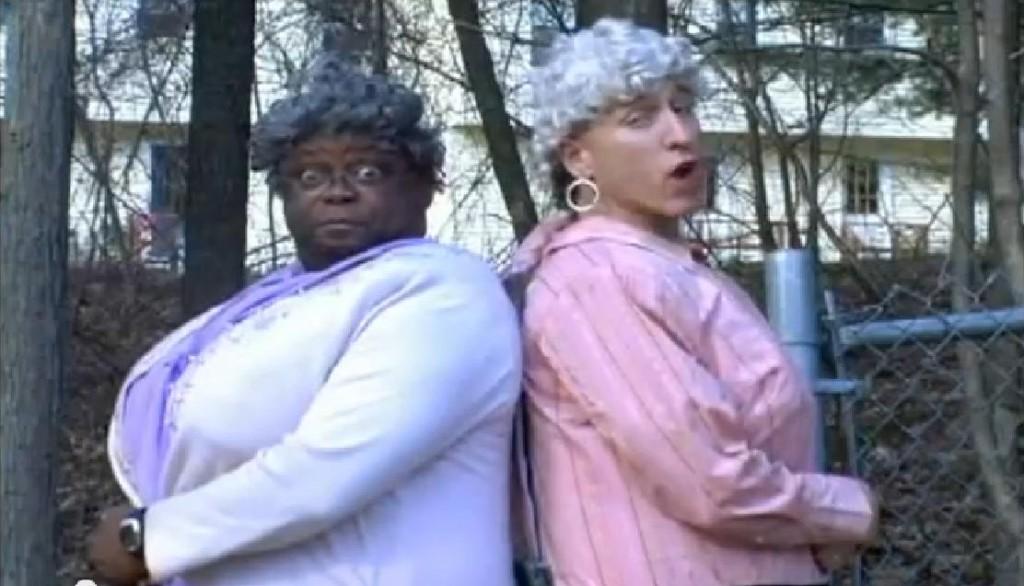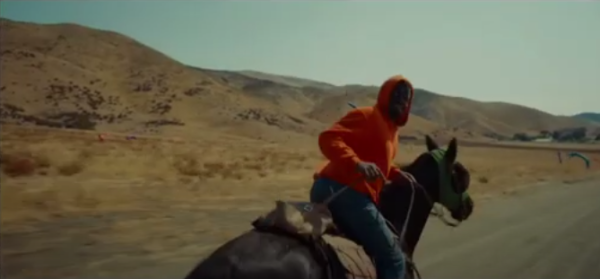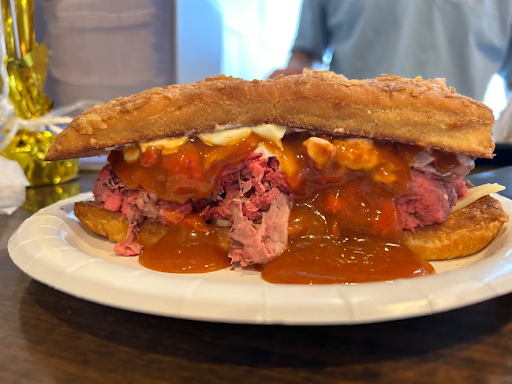Black Jew Dialogues
There is racism, bigotry, islamophobia, homophobia and general hatred in this country. Ron Jones, co founder of the two man stage comedy, The Black Jew Dialogues, calls for a change. In a Q and A, Jones spoke about his experience with the show, what it’s all about and how it has affected him and others.
Q: What are the Black Jew Dialogues?
A: The Black Jew Dialogues is a two man multimedia comedy that deals with the nature of all the “isms” and bigotry in America. It has been called Chappelle’s Show with a conscience.
Q: How did you come up with it?
A: My writing partner, Larry Jay Tish wanted to write a show. He had the title in his head and he came to me and asked if I wanted to do it with him. I said sure.
Q: Why the name?
A: It’s the name Tish thought up. He’s a Buddhist and it was the name that came to him when he was chanting. He came to me with the title and asked if I wanted to help him write it.
Q: What is your favorite part about the show?
A: It would have to be the reactions from the audience and the discussions we have with them after the show we talk about how racism, bigotry and hate affect their lives. We’ve done the show going on 500 times all over America, Canada and UK. Reactions have been positive everywhere.
Q: Have there been incidents where someone has told you your show has changed them?
A: Jones paused before answering: Changed is a stretch. It can give them new insight and give them perspective. We have had people come out as gay in the middle of their High School from the nature of our discussions. We’ve had people talk about really difficult things that happened to them and have the entire audience support them.
Q: How do you feel doing the Black Jew Dialogues? Grateful? Empowered?
A: I feel fortunate because I get to travel around the country and talk to people about the types of things we all deal with but don’t talk about much to each other. We talk about experience of being an outsider. We’ve talked about how it feels when someone stands up for you.
Q: Has the show changed over the years? If so, how? For better or worse?
A: I’ve always believed in a lot of the stuff we talk about. The racism, sexism, homo and Islamophobia in America–it only makes us a weaker country. Makes us more petty and shallow people. The change I’ve seen in myself is things aren’t as bad as I thought they were, but not as good at the same time.
Q: Lastly, why should people see the show?
A: Because its a show all about you. Especially your generation. Its a show about what’s going to happen if we don’t learn the lesson of our own history.” “It’s up to your generation to step up and make sure things get better. The younger you learn to care, the more of an impact you can make.
As I was finishing the interview, Jones added that, “It’s important to learn to laugh at things that are difficult, because it makes it a lot easier to deal with those things.”
Later, I phoned Larry Jay Tish to talk to him about the show. He had this to say:
Q: Has the Black Jew Dialogues changed over the years?
A: It’s changed as a reflection of the times and a reflection of Ron and I changing. Times have changed with 9/11 and gay marriage in terms of what we’ve talked about. As more of these issues take center stage, we talk about them more.
Q: What is the most powerful sketch you’ve done?
A: There’s the old ladies Maybell and Esther skit. It’s the most powerful because the costumes are great, the content is great. It’s a play within a play and shows how people can come together through dialogue.
Q: What is a feareotype?
A: A fearotype is a stereotype mixed with your own fear and comfort–how fear and comfort fits into stereotypes. Once we become uncomfortable with something we don’t know we begin to fear it and you begin to feareotype.
Q: Can you provide an example?
A: “All muslims blow things up.” “Everyone from Iraq is not a good person.” “If a black kid comes into Starbucks make sure you watch your back.” Fereotypes. There is something to be said about awareness, but when we do it to people in a way that affects them then it becomes problematic.
Q: What sets The Black Jew Dialogues apart from any other presentation discussing the isms in America?
A: It is a COMEDY show. A piece of comedic theater. Right away there’s an engagement with the audience. We’re not people up there lecturing, we’re showing our point through comedy and theater. Since they can laugh at these topics, it lowers the tension and makes it easier to talk about in the after- show discussion.
Q: How do you feel with the current state of events regarding all the ‘isms’ in America?
A: There will always be isms, but if I can get a bit more personal: there are isms within me I fight every day, being human. I have to fight my darker nature every day. I think that’s positive because it makes me work harder to change because when it comes down to it I can only change myself.
Q: Why should upcoming generations see the show?
A: It’s important. Just like getting onto an airplane when you don’t fly that much, you’ll want to watch that video on safety. Even though there are thousands of planes that don’t crash, there’s always that one plane. We need to keep working at it so that we don’t revert to our darker nature. It’s like bugs flying into the light. The bugs don’t go teaching each other not to fly into the light. We need to educate ourselves so we don’t end up like the flies.
Q: Is there any one most profound moment you’ve experienced doing the show?
A: There have been several moments from audience members. There was the first time we ever did the show and people like it. That first time you do it in front of other people and KNOW they liked it. We once did a show at a synagog and later received an email that a dad and his son went out to eat and talked for three hours on the show. They hadn’t talked like that in a while so the dad wanted to thank us for bridging that gap.
The Black Jew Dialogues also have a facebook page that they update with articles regularly. Some articles are funny, some sad, others are just informative. Like them here: https://www.facebook.com/theblackjewdialogues
See more about the Black Jew Dialogues here:






